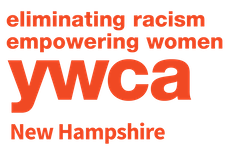Domestic Violence and Homelessness- Domestic Violence (DV) is one of the leading causes of homelessness in the United States. When we talk about homelessness, many picture the tent communities they’ve seen around the city, but that’s not all it is. It’s “couch surfing”, living in your car, staying in a cheap hotel until you run out of funds, often giving up other necessities to maintain this, and even living in homeless and domestic violence shelters. Survivors are often forced to choose between escaping abuse, and having a place to sleep at night. A very common but lesser discussed tactic for control over someone is financial abuse. Many don’t even realize this is a form of abuse, but it is often identified as the main reason survivors remain in or return to an abusive relationship. This can include taking their money or keeping them on an allowance, not paying rent/bills when the abuser said they would/did, building debt in their name and damaging credit, causing them to miss work and potentially get fired or lose hours, or not allowing them to get a job in the first place, and more. When a survivor is forced to be financially dependent on their abuser, someone who is also harming them physically or mentally, leaving becomes even more difficult that it was to begin with. Survivors are stuck trying to figure out how they will find housing, pay for food, keep their phone on so they aren’t cut off from their support system and service providers, wondering how to provide for their kids and fearing they could lose custody, or trying to find dependable transportation, all while trying not to get caught finding these answers as it could make the situation so much worse. The factors discussed in this article make it exponentially more difficult to find housing as when a landlord sees bad credit, debt, and evictions, the blame is placed on the survivor. This is why we work to help survivors navigate these barriers and hope that by forming relationships with landlords and discussing these issues, we can help get survivors into safe and permanent housing.
Info for Community Partners
If you have clients who may benefit from our program you can ask them if they may be interested and refer them to call us to learn more and apply.
Call to Action for Landlords
Our clients are faced with barriers that make it difficult to obtain housing, including isolation from family and friends and financial abuse (which can include ruining credit, forcing victim to lose employment, creating hostile environments which cause them to move frequently—thus ruining rental history). We ask that landlords understand the circumstances that lead to any bad rental history and consider the work our clients are putting in when they apply for their units and are using our program. If you think you may be interested in learning more or even forming a partnership with us, please reach out via info@ywcanh.org to be connected with a member of our housing programs team.
Disclaimer for Survivors
If you are a survivor who thinks they may benefit from these programs, please reach out via our hotline number or resource connect to speak with an advocate about eligibility and apply. To protect confidentiality, we ask that you do not reach out via email. Language services are available for those who may need them.
Sources
YWCA NH Housing First Project is funded through NH Coalition Against Domestic and Sexual Violence (NHCADSV). It is supported by Victims of Crime Act (VOCA) funding that is administered by NH DOJ while the Transitional Housing Program is funded through the Office on Violence Against Women grant funding.
Domestic Violence and Housing-what housing and homeless organizations need to know: Powerpoint produced by Washington State Coalition Against Domestic Violence
Power and Control Wheel image PowerandControl.pdf (theduluthmodel.org)

Recent Comments